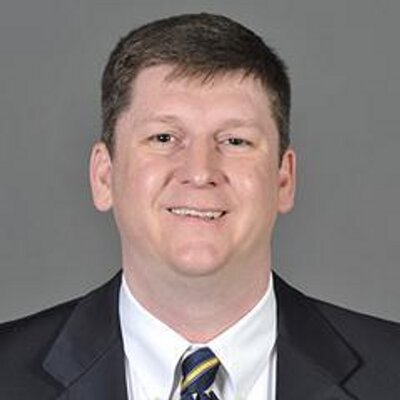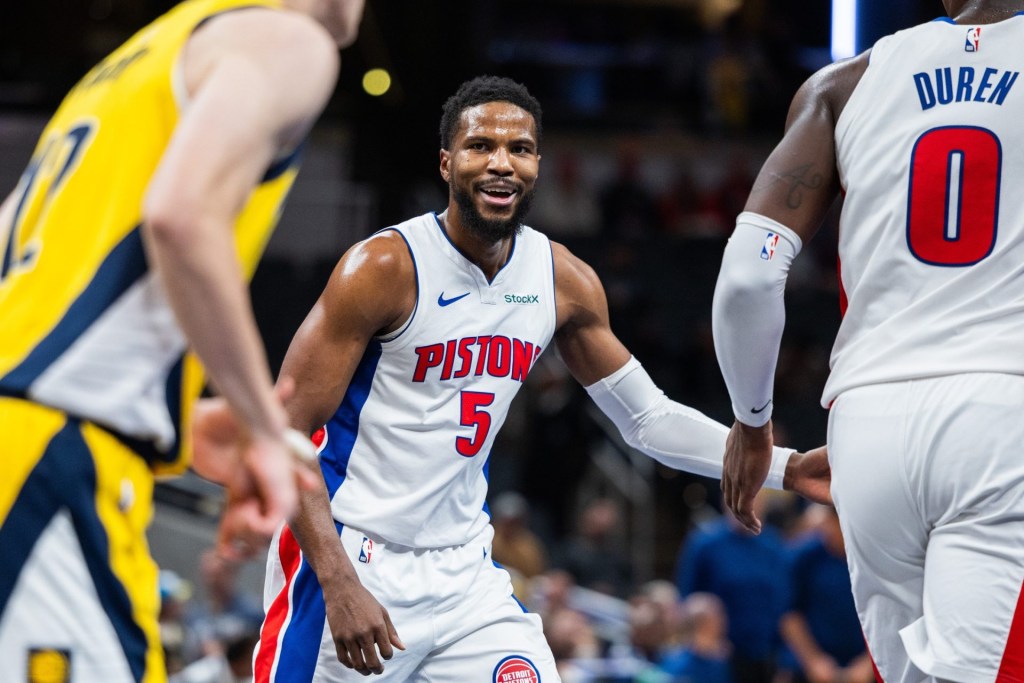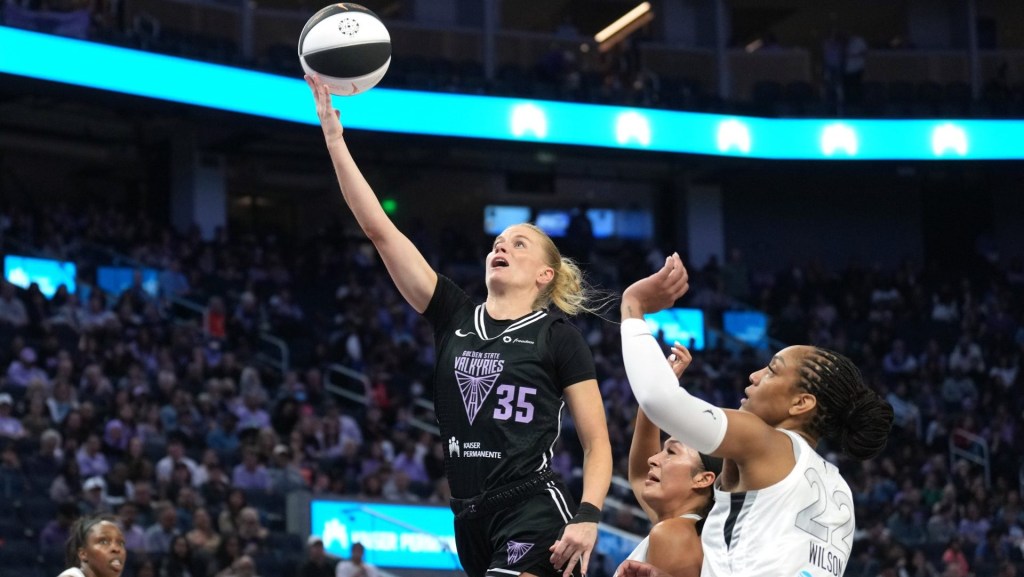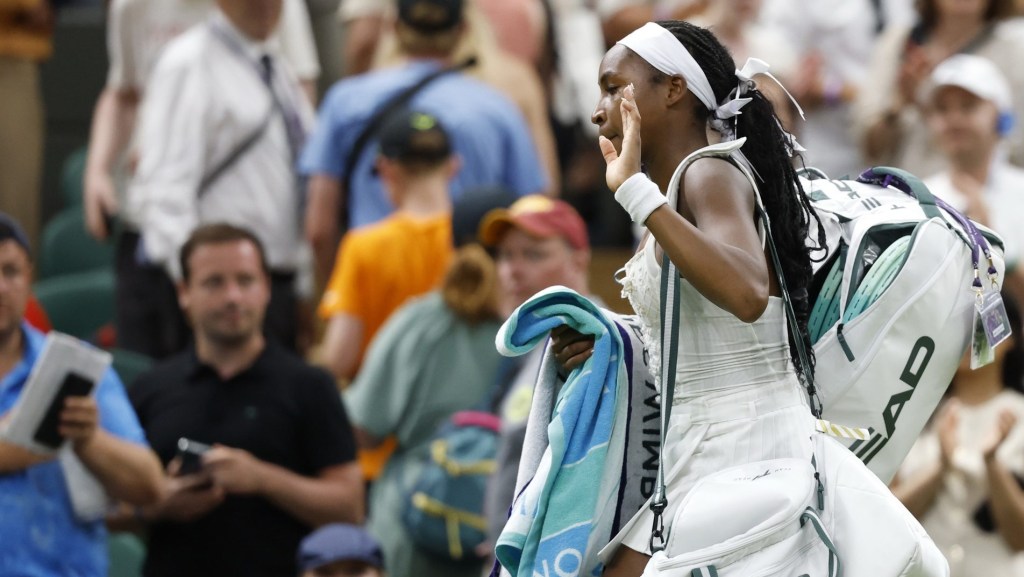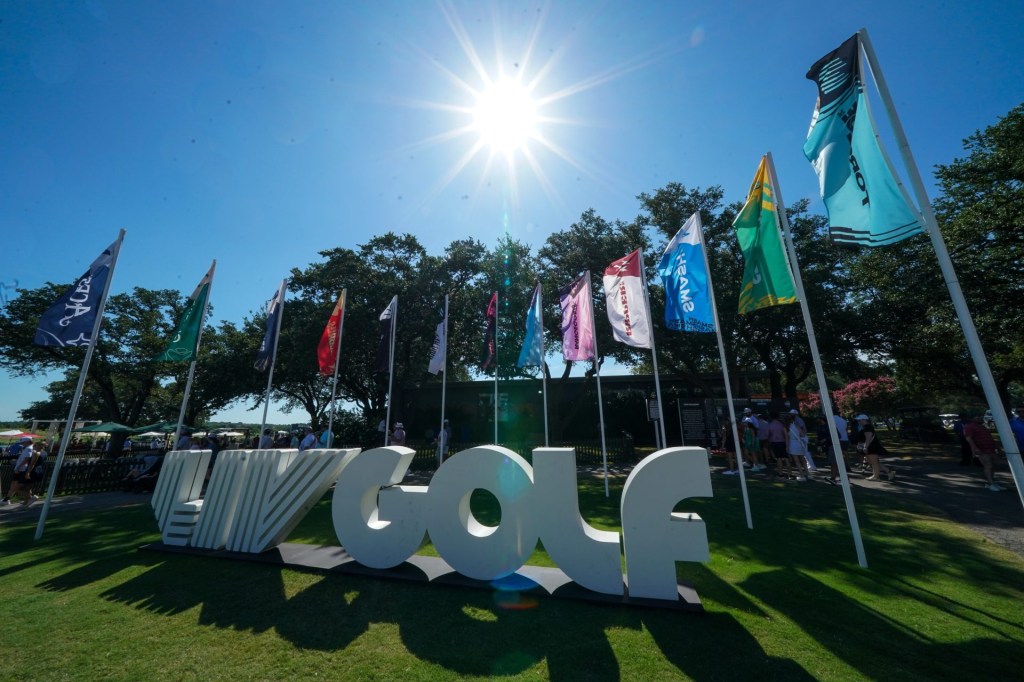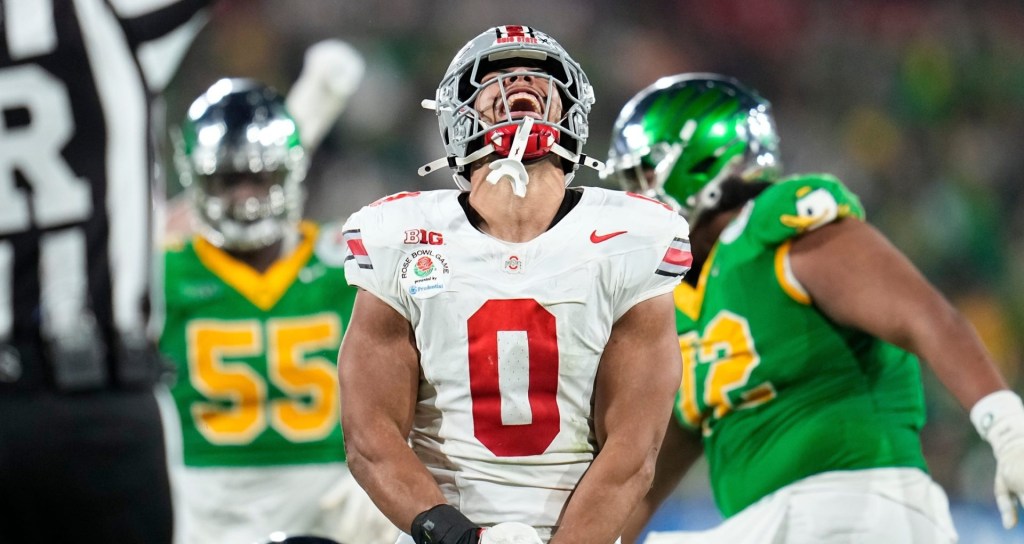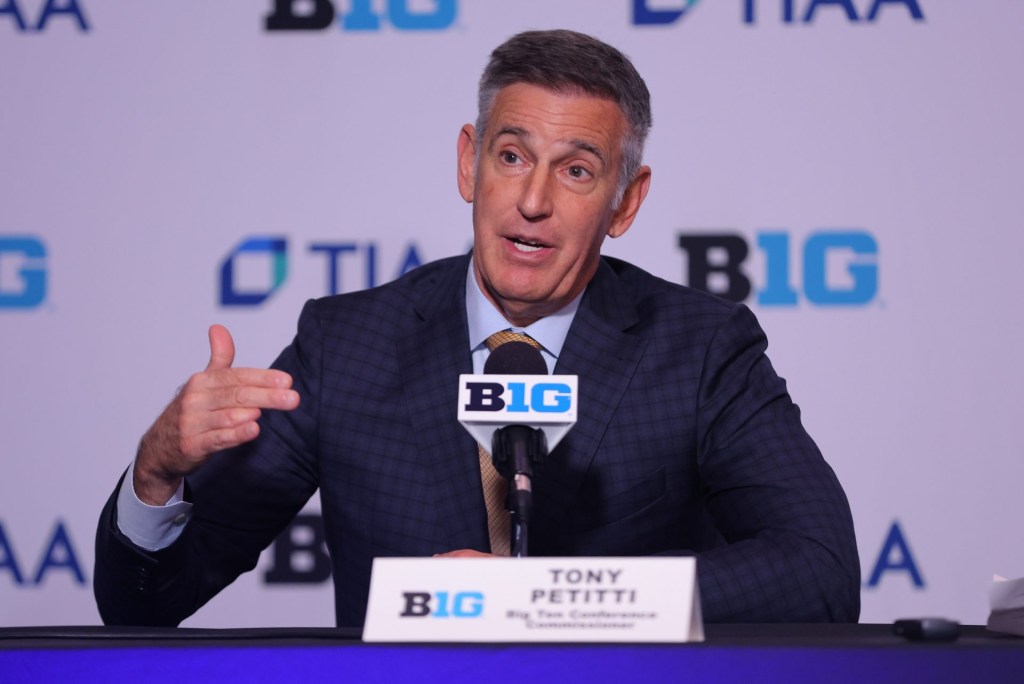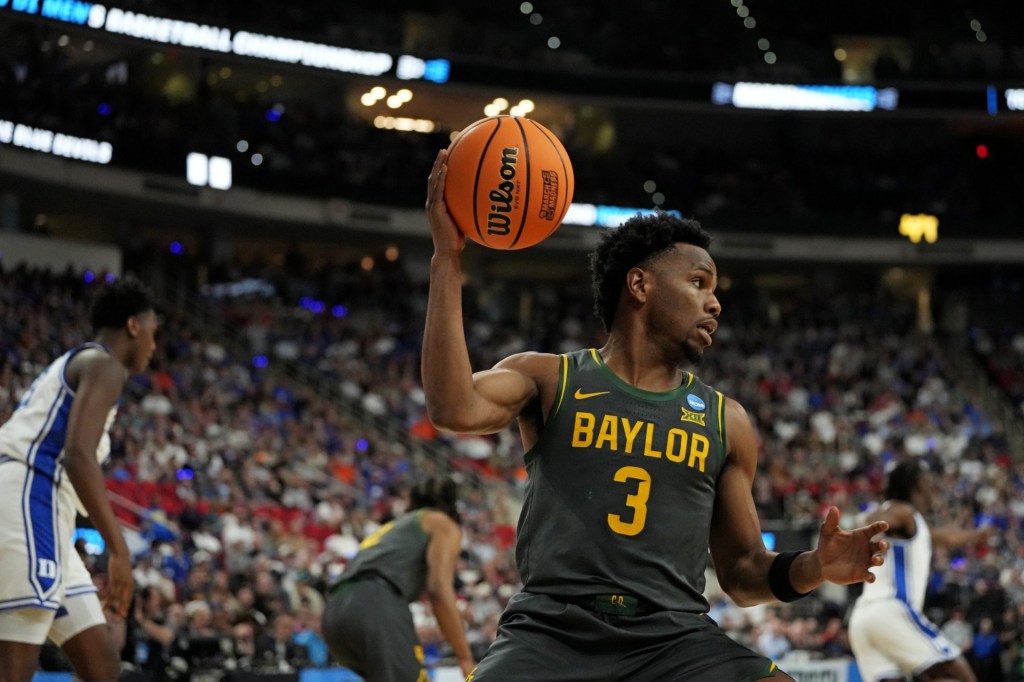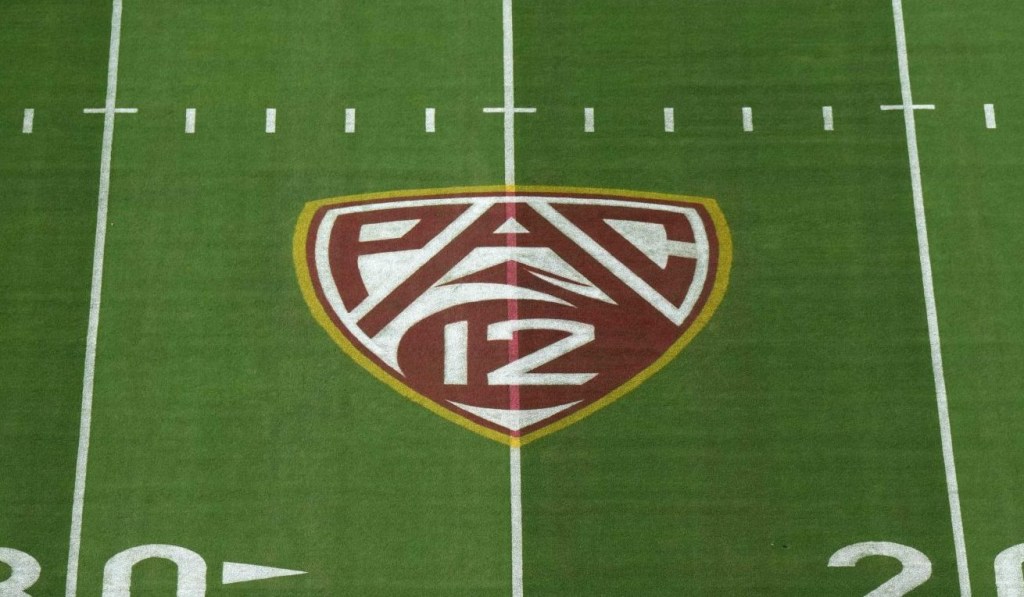By: Joseph Londergan, @joehio_

At the collegiate level of athletics, top administrators can find themselves wearing many different hats in order to serve their department and their brand. As with any stage in a career in sports, being versatile becomes essential. Front Office Sports is proud to have had the chance to speak with someone who has learned this over an extensive career in college sports: Matt Wells of West Virginia University Athletics. Wells serves as the Associate Athletic Director for External Affairs at WVU. He is in his 14th year of working with the Mountaineers. Prior to WVU, Wells served as a marketing and ticketing assistant for the University of Tennessee, where he also completed both his undergraduate and graduate study.
“I’m probably like a lot of other people in the business. I played sports my entire life and a collegiate opportunity to continue did not work out, but I wanted to stay involved in sports because it was a passion. When I learned about the sport management degree and opportunities associated with that, I decided that was a route I wanted to take and went from there. I started as a volunteer intern in the athletic department as part of my practicum class.”
While working in this volunteer Student Assistant position, Wells’ superiors took notice of his drive and adaptability and presented him with an opportunity to come aboard as a graduate assistant and earn his Master’s degree in Sport Management.
“At that time, it was becoming more and more apparent that as you were entering the job market, a graduate degree was going to become more important to marketing yourself when competing for available jobs. I was fortunate that I’d done a decent enough job in my undergraduate work that I had the opportunity to continue as a graduate assistant. It really worked out as well as I could have hoped.”
Looking back on his career in college athletics, Wells remembers the moment during his time at Tennessee when he realized he had taken the right path.
“Having grown up in the Knoxville area and followed the University of Tennessee athletic programs my entire life, I had a chance to be on the sideline and conduct a field goal kick promotion for a sponsor as part of a Tennessee vs. Florida game in ’98. It was a game in which Florida was probably heavily favored, and Tennessee ended up pulling off the upset. It spring boarded them to a national championship run. Just being there and working something that was that big time of an event, I think that’s when I really got bitten by the bug and knew college athletics was something I wanted to do as a career and truly had a passion for.”
Throughout these early opportunities, Wells made an essential realization for a young professional: a large volume of experience can only make you stronger.
“Get your hands involved in as many areas as possible. For me, even though I worked in the marketing office as an undergrad and a graduate assistant at Tennessee, the marketing office and development office were housed in the same office space, so I was able to gain some development experience. I was able to translate the relationships that I made during my time working in marketing and went and did some work in the ticket office as well, which helped me learn more about that side of the business. I think that really helped prepare me for that first entry level job, since I had experience in all three of those areas. Then when I came here to West Virginia, we were handling our sponsorship sales in house at the time, and I was able to add to that ticketing, marketing, development experience with sponsorship sales and really kind of help turn into a well-rounded professional.”
Working in several different departments early in his career translated well to Wells’ current role with West Virginia. Wells leads the WVU Sports Marketing and Mountaineer Ticket Office staffs, manages the relationship between Athletics and IMG College and is also responsible for the Department’s retained sponsorship agreements including the apparel contract with Nike. Wells also serves as the sport administrator for baseball. However, wearing this large amount of hats is easier said than done.
“I think at the end of the day it comes down to time management and also having a good staff to help you. There’s no way any one person can handle all of that. You’ve got to have a good ticket staff, a good marketing staff; it really comes down to surrounding yourself and being involved with good people.”
Tackling unique experiences can also speak to a professional’s versatility. Wells had the opportunity to do this in 2012 when WVU joined the Big 12 conference after competing in the Big East conference for 17 years.
“It had an impact on us when some schools left the Big East initially for the ACC, and we reconfigured the Big East. Then a few years later, we were part of the shuffling where we left the Big East for the Big 12. One thing that we always focused on was selling West Virginia and what our strengths and benefits were and didn’t worry about everything else.”
This proved to be a successful exercise in branding for Wells and his team.
“With the move to the Big 12, we really spent a lot of time and focus with our fan base and our constituents positioning that move for the big deal that it really was. We spent that spring and summer focusing hard on promoting and working to brand the Big 12 and our affiliation with them to our fans. We did things on our website to talk about it and the other campuses and universities we were going to be visiting. We tried to really use it as an educational opportunity for our fans, who started to educate themselves and become more familiar with the league and our opponents.”
Much of Wells’ position with WVU involves a heavy amount of impression management, from sponsorship signage to the uniforms worn by the student athletes. He offered this advice creating good first impressions for the sake of the brand:
“Always keep in mind that the brand comes first. The athletic department is the front porch of the university. You have so many people who know West Virginia University through our teams and our coaches and our players. No one person is larger than the brand. You make your decisions in the best interest of protecting and promoting West Virginia University, West Virginia Athletics, and the Mountaineers. Often times, fans have never stepped foot on campus for anything other than an athletic event, if they’ve ever stepped foot on campus at all, and they certainly haven’t had an opportunity to attend class.”
Through all of the challenges, the interpersonal relationships remain Matt’s favorite aspect of the job.
”It’s the opportunities to deal with the people that you get to deal with. Whether that’s internally, with your head coaches, assistant coaches, and student-athletes and the relationships you develop with them over the years, and certainly externally, with your fans, your season ticket holders, your donors, your single game purchasers, your sponsors. You have a lot of people who have an invested interest in the Mountaineers. That’s really what makes this job special and what makes what you’re doing from a sports marketing standpoint, when you’re making that sales call or talking to someone about tickets or supporting as a sponsor or a donor, you’re asking them to spend money with you. And you do that in a lot of different areas. But I think people are more excited to talk to us as sport marketers and as development professionals about what we have to offer and what we’re coming to talk to them about.”
As much fun as there is to be had working in sport, Matt reiterates that there are a few misconceptions about pursuing a career in this field from the younger crowd.
“I think the biggest thing that they don’t understand is the time involved. I think sometimes people think that maybe working in sports and working the events is a little more glamorous than what it really is. You often hear (from people like me) ‘I see less of the game than pretty much everybody else in the venue’. I’m pretty sure I didn’t realize it when I was a student and trying to break into the business. It’s just something you have to experience to really appreciate and understand. Especially when you have those time periods where there is overlap, and you’ve got men’s and women’s soccer and volleyball and men’s and women’s basketball all going at the same time and you end up having 3, 4, 5 events going per week in addition to everything else you’ve got to take care of in the office.”
When looking to bring in new employees, Wells reiterated that two things are essential in his eyes for potential candidates: a strong work ethic and passion.
“Number one, I think someone who demonstrates a strong work ethic because it is a grind. There are a lot of hours. There are a lot of parts of this business that are far from glamorous. But I think also you’re looking for somebody with a passion to get involved, to learn, to grow. Someone who’s not doing it just to be seen or to say that they work for the team or the program, but is doing it to come in and make an impact and help better our overall operation.”
Matt offered these words of parting wisdom:
“Again, I think the key is to do as much to gain experience as you can. Do as much as you can to gain experience in different areas to make yourself versatile and marketable. And the other part of it, do everything you can to develop relationships and to show the people that you’re working with and that you’re working for how reliable, how dependable, how good you are because you just never know when someone you had an interaction with five, ten, fifteen years prior might think about you when they have a job opening or when they get a calling from a colleague or a friend and say ‘do you know anybody for this position?’ and they say ‘oh yeah, I’ve got somebody for you’.”
“Don’t underestimate the value of developing and building those relationships because this is ultimately a relationship business. It’s all about people. If you can start early developing relationships, it’s going to help you throughout your career both personally and the department you are working in because in college athletics, we are nothing without our supporters, our fans, our ticket purchasers, our donors, our sponsors. That’s what gives us the ability to create opportunities for student athletes. The relationship building part of it is crucial.”
We would like to thank Matt for his time and insights and we wish him the best of luck in his future endeavors! You can follow him on Twitter here or connect with him on LinkedIn here!
